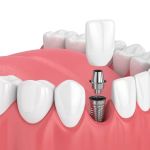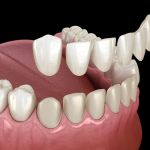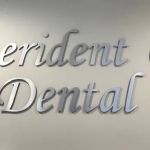How to Prevent Oral Diseases Through Proper Oral Care
- 1. The Importance of Oral Care in Preventing Oral Diseases
- 2. Common Oral Diseases and Their Causes
- 3. Key Steps to Prevent Oral Diseases
- 4. The Role of Dental Products in Proper Oral Care
- 5. Real-Life Example of Preventing Oral Disease
1. The Importance of Oral Care in Preventing Oral Diseases
Good oral care is essential for maintaining not only a bright smile but also overall health. Proper oral hygiene helps prevent the onset of oral diseases such as gum disease, tooth decay, and bad breath. When oral care is neglected, bacteria in the mouth can build up, leading to the development of serious issues that may impact your teeth, gums, and even your general well-being. Preventing these diseases begins with understanding the crucial role of oral care and adopting a consistent, daily oral hygiene routine.
2. Common Oral Diseases and Their Causes
Several oral diseases can be prevented with proper oral care. Some of the most common include:
- Gum disease (Gingivitis and Periodontitis) – Caused by the accumulation of plaque and bacteria at the gum line, leading to gum inflammation and infection.
- Tooth decay (Cavities) – Results from a buildup of acids that erode the tooth enamel, typically caused by poor diet and improper oral hygiene.
- Bad breath (Halitosis) – Often caused by bacteria in the mouth, food particles, or dry mouth.
- Mouth sores (Aphthous ulcers) – Can be triggered by stress, poor nutrition, or irritation from certain foods or dental products.
These diseases are often the result of poor oral care habits, making regular brushing, flossing, and proper dental check-ups essential for prevention.
3. Key Steps to Prevent Oral Diseases
Preventing oral diseases involves a combination of daily care and professional dental visits. Here are some key steps to help you maintain optimal oral health:
- Brush your teeth twice daily – Use fluoride toothpaste and a soft-bristled brush to remove plaque and food particles. Be sure to brush for at least two minutes each time.
- Floss daily – Flossing helps remove food and plaque between your teeth and along the gum line, areas that your toothbrush can’t reach.
- Use mouthwash – Antiseptic mouthwash can help reduce bacteria and freshen your breath.
- Maintain a healthy diet – A balanced diet with limited sugary foods and drinks helps protect your teeth from cavities and gum disease.
- Visit your dentist regularly – Regular dental check-ups and cleanings help detect potential issues early and ensure a healthy mouth.
Following these steps consistently will significantly reduce the risk of developing oral diseases and promote better oral health.
4. The Role of Dental Products in Proper Oral Care
In addition to regular brushing and flossing, dental products can play a significant role in preventing oral diseases. Some essential products include:
- Fluoride toothpaste – Fluoride strengthens enamel and helps prevent cavities.
- Electric toothbrushes – Provide more consistent and effective brushing than manual toothbrushes.
- Dental floss or interdental brushes – Effective for cleaning between teeth, where cavities and gum disease often start.
- Antiseptic mouthwash – Reduces bacteria, which is essential for preventing gum disease and bad breath.
By incorporating these products into your oral care routine, you can provide additional protection and support to prevent oral diseases.
5. Real-Life Example of Preventing Oral Disease
Consider the case of Alex, a 40-year-old man who struggled with frequent gum inflammation and bad breath. After visiting his dentist, he was advised to improve his oral care routine by brushing more effectively, flossing daily, and using an antiseptic mouthwash. Within a few weeks, Alex noticed significant improvements in his gum health and a reduction in bad breath. This real-life example shows that by adopting proper oral care habits, even individuals with existing oral issues can prevent further complications and maintain better oral health.







 Nevada Dentistry & Braces4.0 (573 review)
Nevada Dentistry & Braces4.0 (573 review) Pediatric Dental Associates of Randolph4.0 (1772 review)
Pediatric Dental Associates of Randolph4.0 (1772 review) Tacoma Dental Care, Dr. Thi Truong Nguyen, DMD.5.0 (29 review)
Tacoma Dental Care, Dr. Thi Truong Nguyen, DMD.5.0 (29 review) Tranquility Dental Wellness4.0 (500 review)
Tranquility Dental Wellness4.0 (500 review) Amerident Dental PC4.0 (169 review)
Amerident Dental PC4.0 (169 review) Maddison Ave Dental4.0 (83 review)
Maddison Ave Dental4.0 (83 review) The Importance of Oral Health Education During Pregnancy for a Healthy Pregnancy
The Importance of Oral Health Education During Pregnancy for a Healthy Pregnancy Best Tips for Brushing Your Teeth Properly for Healthy Gums: Essential Techniques for Oral Health
Best Tips for Brushing Your Teeth Properly for Healthy Gums: Essential Techniques for Oral Health Why Skipping Dental Checkups Can Lead to Bigger Oral Health Problems
Why Skipping Dental Checkups Can Lead to Bigger Oral Health Problems Advantages of Porcelain Dental Restorations
Advantages of Porcelain Dental Restorations How Can Diabetes Cause Tooth and Gum Problems? Preventing and Managing Oral Health Issues
How Can Diabetes Cause Tooth and Gum Problems? Preventing and Managing Oral Health Issues Healthy Habits for Promoting Good Oral Health and Hygiene: Tips for a Healthy Smile
Healthy Habits for Promoting Good Oral Health and Hygiene: Tips for a Healthy Smile